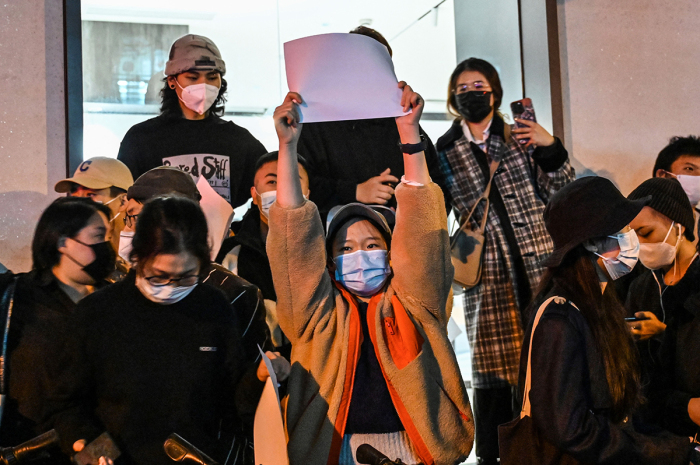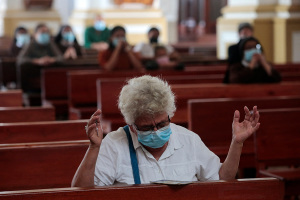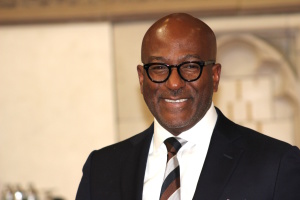China demands tech companies censor social media 'likes,' posts amid nationwide protests

Authorities in China are tightening regulation of social media "likes" and comments this week to stamp out protests against the Communist Party's strict COVID-19 lockdown restrictions months after enacting more stringent regulations on who can post religious content online.
The Cyberspace Administration of China issued new guidance to tech companies asking them to expand internet censorship teams. The guidance comes as social media has become a primary avenue for activists protesting the government across the nation to get their message heard globally.
Companies that have received the guidance include Tencent Holdings Ltd. and ByteDance Ltd., the Chinese owner of short video apps TikTok and Douyin, The Wall Street Journal reported.
The U.S.-based group China Aid, which monitors human rights in China, warns the guidance will come into force Thursday, resulting in stricter and more refined control over public speech on the internet. The organization reports the new regulation will require "strict supervision and review of the likes and comments posted online."
"The new 'Provisions' require comments posting service providers to have users provide information such as mobile phone numbers and ID card numbers before they can register and use the platforms," Yu Bing, a special correspondent for ChinaAid, wrote in a report.
"Comment posting service providers must hire speech review teams and use technology and strict review methods to control the comments on posts. Providers must also review all news information prior to posting and set up a reporting system to encourage everyone to report 'bad information' to the Internet Information Department."
According to China Aid, service providers must also "establish user classification management system, to determine the credit level of 'dangerous' account holders" and "blacklist seriously untrustworthy users."
"Blacklisted users are prohibited from using comments services by re-registering their accounts," China Aid said.
David Zweig, professor emeritus at the Hong Kong University of Science and Technology, told CNN that "likes" show there is "popular support for the issue being raised."
"Too many likes ‘can start a prairie fire,’” Zweig said.
“The threats to the [Chinese Communist Party] come from an ability to communicate across cities. The authorities must have been really spooked when so many people in so many cities came out at the same time."
Search engines, e-commerce companies and internet content platforms have been asked to censor postings and information about the use of virtual private networks, also known as VPNs, which protesters and their supporters recently used to circulate videos of the demonstrations.
The government has also asked service providers to report undesirable content to regulators but has not specified penalties for rule violations, according to Reuters.
Massive protests erupted last month after at least 10 people were killed in a deadly fire in an apartment in Urumqi, the capital of Xinjiang. Critics contend China's COVID-19 restrictions played a factor in the deaths, AFP reported. While Chinese authorities denied that President Xi Jinping's "zero COVID" policies and lockdowns caused the deaths, officials in Urumqi issued an unusual apology saying restrictions would be phased out, according to the BBC.
In Shanghai, protesters in Wulumuqi street chanted slogans like, "Xi Jinping, step down! CCP, step down!" as seen in videos shared widely on social media.
Amid the protests, some cities have started relaxing some COVID-19 measures. In Beijing, people who test positive are now allowed to isolate at home, and compulsory citywide testing has been stopped, according to WSJ. However, more severe restrictions are being implemented.
Recently, the California-based tech giant Apple came under fire after it updated its iOS 16 global operating system in mainland China to limit the AirDrop function, which was used widely during the protests to share the anti-government sentiment.
U.S. Sen. Lindsey Graham, a Republican, said in an interview with Fox News that "corporate appeasement of the Chinese Communist Party is pretty rampant," as the country has over 1 billion potential customers.
"I like Apple. They are a great American company, but the Chinese Communist Party writes the rules of the road," the senator said. "And to do business in China, you either leave the customer base or you follow their lead. ... I think this is a mistake."
The Chinese government has enacted other regulations to limit speech online this year.
As The Christian Post reported, the Chinese government implemented Administrative Measures for Internet Religious Information Services in March, mandating an "Internet Religious Information Service License" for any religious group seeking to disseminate religious content on the internet. Under the law, only "legally established" organizations may register for a license in the country that only recognizes five religious groups that submit to the government's influence.
"Chinese officials claim that this initiative was necessary to address religious groups who have 'set up virtual religious activity venues and religious institutions on the Internet … which disrupted and impacted the normal order of religious affairs management,'" the U.S.-based watchdog International Christian Concern reports.
"Under China's new measures, anyone who wants to share religious content online must 'apply to the provincial departments of religious affairs, making a detailed statement on the licensing requirements, application materials, username, and the time limit for acceptance.'"
Earlier this year, China Christian Daily reported that a woman in China was censored after one of her comments on the DingTalk app was deemed illegal by the government.
In 2021, Bible apps were removed from the App Store in China and some Christian WeChat accounts, including "Gospel League" and "Life Quarterly," were disabled.
In China, where evangelism is banned outside registered religious sites, Christians are severely persecuted and their rights are restricted along with other religious minorities. Open Doors USA, which monitors Christian persecution in over 60 countries, ranks China as the 17th worst country when it comes to Christian persecution.
"Christian leaders are generally the main target of government surveillance, and a very small number have been abducted," Open Doors states in a factsheet.
There may be as many as 100 million Christians in China as scholars have said that, given the growth of Christianity in China, there could be more Christians in China than anywhere else in the world by 2030.
The enhanced censorship has come at a time when religious freedom is getting worse "by the day," according to China Aid.




























